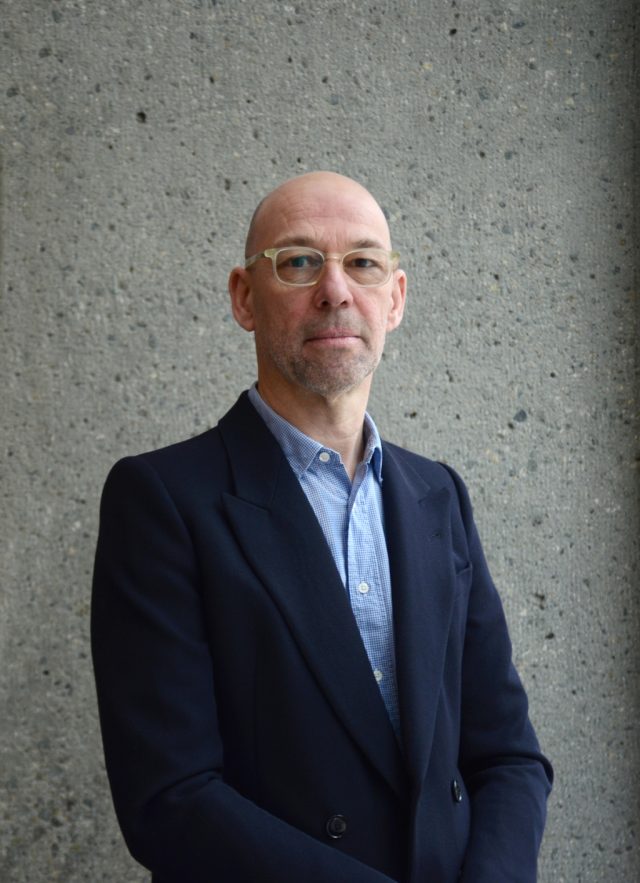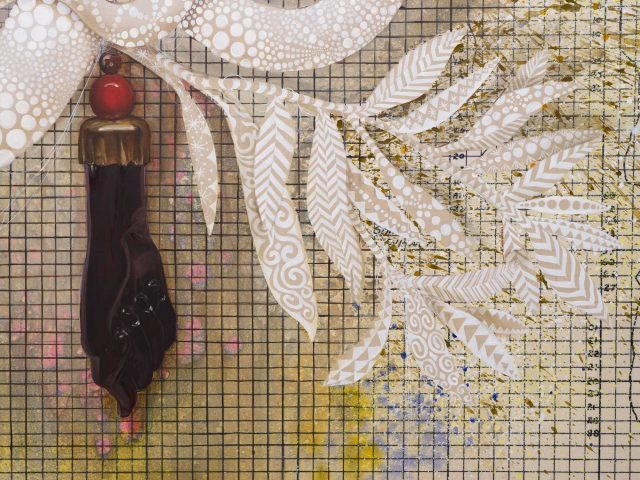Director of Artes Mundi, Nigel Prince, discusses the challenges wrought by COVID and Brexit and the impacts these have on showcasing the work of international artists

“The arts is one of many industries navigating its way through the challenges wrought by COVID-19 and Brexit, but organisations such as Artes Mundi are dedicated to negotiating the terrain to ensure a thriving future of arts and culture. As an international arts organisation, based in Cardiff, UK and established in 2002, Artes Mundi is committed to working with international contemporary visual artists whose work engages with social reality and lived experience, a platform for diverse perspectives and voices that resonates conceptually, thematically and practically at a local and national level.
“For Artes Mundi 9, the biennial exhibition and public programming will launch online in March 2021 having been originally planned to open across three venues: National Museum Cardiff, Chapter and g39. While the installation is set up and ready to go, its physical launch can only follow once tier restrictions are lifted.
See also: An Art Insider’s View of the Year From Matthew Israel
“The Artes Mundi 9 exhibition will feature new and recent work by six leading international contemporary artists selected by an expert jury out of more than 700 nominations from 90 countries. The Artes Mundi 9 shortlisted artists includes Firelei Báez (Dominican Republic), Dineo Seshee Bopape (South Africa), (top of page Installation view, Solo Exhibition: Main Prize winner of the Future Generation Art Prize 2017, Pinchuk Art Centre Kiev, Ukraine, 2018, Photo by Maksym Biousov, Courtesy the artist and Sfeir-Semler Gallery, Hamburg/Beirut), Meiro Koizumi (Japan), Beatriz Santiago Muñoz (Puerto Rico), Prabhakar Pachpute (India) and Carrie Mae Weems (USA).
Hurdles
“Working internationally at the time of COVID-19, combined with Brexit, has resulted in many physical, economic and logistical hurdles to overcome. This begins with artists being unable to travel due to various restrictions, bans, quarantines etc. all of which differ over time and place. Consequently an amended planning has to be put in place dovetailing with the more usual curatorial and logistical conversations surrounding selection of work, meaning and other considerations.
“A specific problem we encountered was the hugely rising cost of shipping, determined not only by insurance increases but also by availability. Art is just one of the many goods being freighted across the globe. Fewer flights means less slots and space to ship. Demand is not lessened to match, resulting in driving prices up. Less availability also results in greater competition for slots, so we found shipments were also delayed or arrived later with all the knock-on effects to the larger schedules in place.
See also: Huge Damien Hirst Exhibition Announced by Newport Street Gallery
“This was further increased due to the necessity of observing safe working practices for art handlers with things taking longer to process as well as costs for items such as PPE being added to bills. Then when work arrives in the UK it took longer to be released by customs, and on arrival at venues had to quarantine for 72 hours before crates could safely be opened and all usual procedures and checks adhered to prior to installation commencing.

Perception
“At the time of installation, not being able to have the artist physically present means a loss in terms of the usual camaraderie and the possibility for quick decisions to be made. The perception of being in a gallery with the work enables all sorts of conversations and unanticipated changes to occur easily and fluidly, so in the planning this time round, we have been conscious to try to maintain a degree of flexibility and allow time and space for this to happen along with necessary reflection. It also means there is a different kind of exchange between curator and artist, be that mediated by a screen and attempting to convey as accurate a set of conditions as possible, through to building in regular feedback via video, photographs and online conversations.
“These measures mean the exchange, trust and dialogue between artist and curator that is always there, operates in a slightly different way. We have been very conscious to be the surrogate or representative of the artist’s wishes, especially when installing works that ordinarily would very much rely on and involve the artist being present.
“While for some artists, the practice of not needing to always be there for installation is intrinsic to their work and methods, for Artes Mundi 9, this new way of working remotely was most acutely felt with Prabhakar Pachpute and Dineo Seshee Bopape, whose practice is rooted in spending time in galleries, installing their work directly, responding to the space and materials.
See also: Galerie Templon Paris Presents Exhibition of ‘Fierce’ Kienholz Installations
“Consequently, for us it meant initial conversations and selections of work had to be modified or revisited as the artists thought through ways to overcome these obstacles while ensuring the clarity, power and presence of their work is not diminished. We also had to undertake certain procedures for these artists or bring in other artists during installation following their instructions, a positive aspect being younger and Wales based artists were able to act as assistants on the ground, useful learning and practical opportunities for those emerging.

“Time and working practices also affected the technical crews too, with PPE, working rotas, staffing levels, numbers of people being allowed into a space at any one time, ways to manage safe working distances, all being part of a revised set of protocols. Consequently this has required careful management as well as planning of different time scales and schedules of delivery, while not causing in reduction in care or attention to detail.
Virtual
“For the virtual launch, audiences will be able to explore the exhibition initially through guided video walkthroughs of each artist’s presentation, audio descriptions and still photographic documentation within gallery settings. We are conscious that this doesn’t always create the same set of opportunities for audiences where physical conditions such as scale, materiality, layout and siting within a space all add to the experience and importantly carry meaning in terms of what work can communicate.
“Nonetheless, to aid with the communication of this nuance and at times subtlety, and as part of Artes Mundi’s digital offering, a robust public programme will launch online alongside the exhibition, structured as a series of talks, podcasts, live streamed and downloadable activities and events. Starting with panel-based discussions, these will provide deeper insight into the practice, ideas, issues and thinking of each of the shortlisted artists and their work. These elements form part of the expanded digital offer we had begun to plan prior to the emergence of the pandemic and in many ways while there is no substitute for visiting an exhibition in person, regarding our public programming, then the move online is not all negative.
“For example, our talk programme will feature people from around the world, simultaneously involving contributors from the UK, Senegal, Australia, Hong Kong, the US etc., a condition likely not possible in person due to the restrictions on budget we all face and yet now allowing a greater range of voices and audiences to be present. The live events will then be available as podcasts further increasing potential audience participation far beyond the event itself. It also means that such initiatives assist in driving down the environmental impact of cultural organisations.

“If COVID19 has not been damaging enough for the visual arts world with museums and art galleries being forced to closed for months at a time, there are difficulties we continue to face post-Brexit. The delays and increased costs of working, for Artes Mundi, felt most keenly in our international shipping costs and associated insurance more than doubling from first estimates received, are ongoing conditions we grapple with and that continue to be affected by both COVID-19, but also by the uncertainties and legacies of Brexit.
“With financial resources already stretched to compensate for other conditions resulting from the pandemic and funders and their investments hit by economic downturn as well as demands for new priorities for support, then something has to give. That is not to say that things need to change and for too long issues were not being addressed surrounding equity, representation and inclusion. And while the importance of being rooted in locality as a means to give other layers of meaning to working internationally is key, this shouldn’t be at the expense of a reduction of opportunities for all and learning through partnership, collaboration and sharing. As with everything a balance needs to be achieved within the very necessary recalibration.
Culture
“Reports during the last few months are beginning to reveal the difficulties many industries are facing and culture is part of this. Arts organisations face new pressures affecting visas for artists to visit the UK to work, tour and present – the bureaucracy associated and at times what can seem like a lack of clarity on approach to take doesn’t help – recruitment and reach opportunities become reduced and the potential to retreat into an insularity can prove damaging.
“For many cultural organisations part of the metrics we have to provide to stakeholders is based on quantifiable data. It will be interesting to see how this needs to shift to focus on quality of experience as visitors will engage with exhibitions in differing ways, attendances will be lower and if for example, through tourism, figures and the tangible economic benefits that brings to local commerce are lower than in the past. Further effects such as critical coverage too and the benefits this brings, will also be monitored to gauge changes and shifts within the broader cultural landscape.

“More than ever, it is crucial to achieve and maintain a balance between the local and the global. Historically through all aspects of its operation—the artists we work with toward the biennial exhibition, the Artes Mundi Prize, a significant and far-reaching public programme and a longstanding and ongoing sequence of co-creative partnerships with individuals, groups and other organisations—it has sought to continually work toward achieving its mission to generate opportunities for individuals and local communities to engage creatively with the urgent issues of our time in ways which resonate with us all, in part through bringing exceptional international art to Wales.
“It is committed to stimulating dialogue and debates, internationally and locally, that develop greater understanding of ourselves, of others, and of the relations between familiar and distant cultures. For Artes Mundi 9 although the shortlist was first confirmed in September 2019—at a time when few could predict what the world was accelerating towards—it is no coincidence that the artists all examine, address and question some of the most significant issues we are currently facing. Presentations will centre on the devastating impact of histories of colonialism, environmental change, intergenerational trauma and healing, socio-political notions of memory—from the personal to the collective, to the known and unknown—narration, the aftermath and legacies of conflict, and ongoing concerns surrounding representation and privilege.
“We are far from perfect but we strive, in the oft misquoted phrase to “fail better” as we recognise this is not something simplistic or to (ever) be completed but to be a constant, continuing responsibility and set of conditions to address.
See also: HOFA Gallery Mounts Virtual Exhibitions In Response to Coronavirus

“As we live through and engage with changes of significant worldwide impact, more than ever the work of all six artists speaks to and resonates with, the ideas and issues we need to address individually and collectively within our societies, reflecting powerfully on the changing forces that shape our world and the crucial potential and role culture plays in longer term change.”
Nigel Prince, Director of Artes Mundi
Artes Mundi 9 will open virtually on 15th March, with the prize announced on 15th April 2021.












